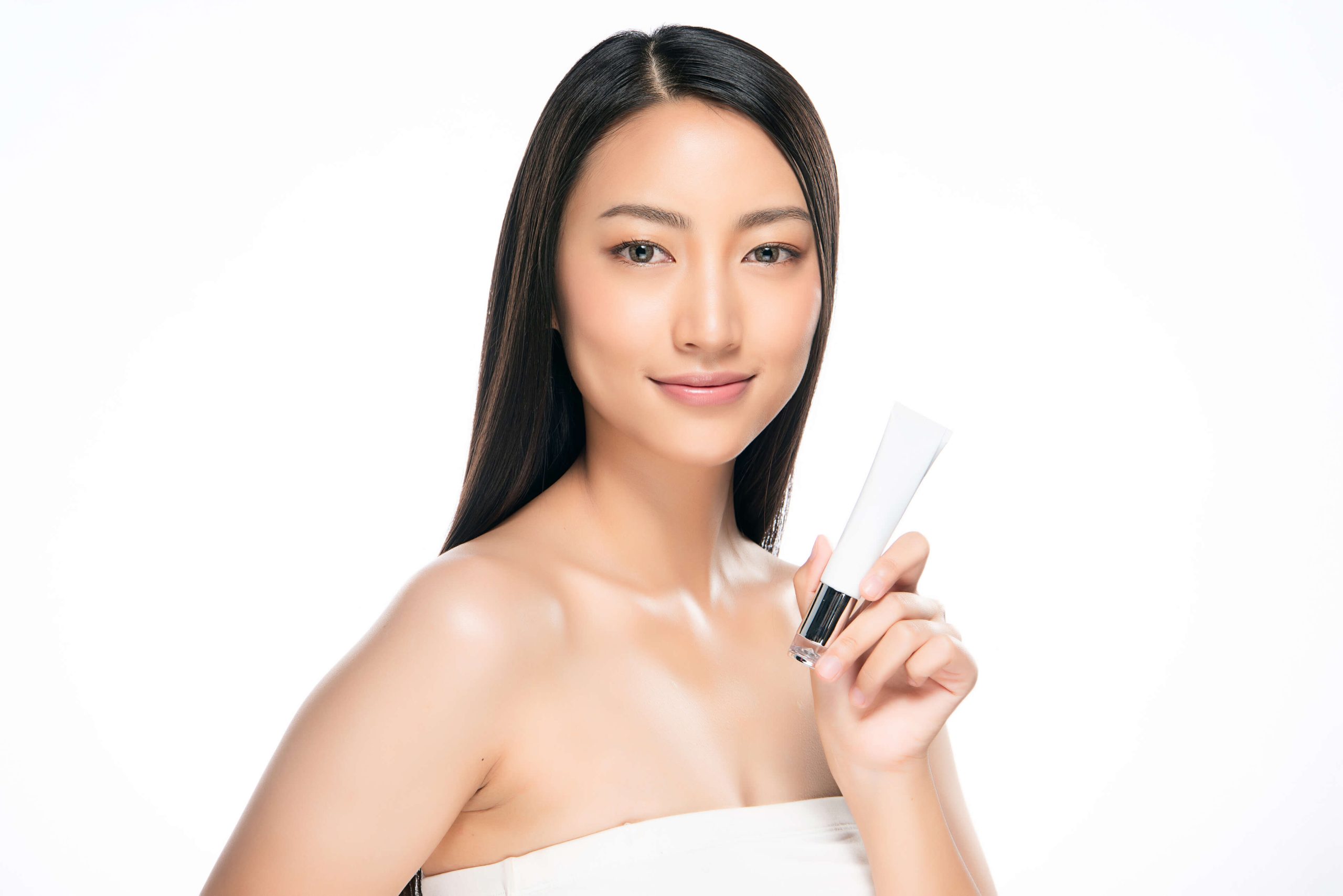
Medically Reviewed by Dr. Lee Hwee Chyen
MBBS MRCP (UK) FAMS (Dermatology)

Peptides are short chains of amino acids that are linked together by peptide bonds, hence the name. They are the base unit of proteins, which are essential components of cells. In skincare, peptides are often used due to their potential to signal the body to produce collagen, a protein vital to skin health.
Peptides in skincare products can provide several potential benefits. They can help stimulate collagen production, which can improve the skin’s elasticity and reduce the appearance of fine lines and wrinkles. Some peptides can also help promote skin healing and act as antioxidants, protecting the skin from damage caused by free radicals.
Skincare products may contain an array of diverse peptides, each with a unique potential benefit for the skin. These include but are not limited to:
The sheer number of peptides and their often-long names make it challenging to identify them on an ingredient list. Here’s an easy way to know if the ingredient you’re assessing is a peptide or not.
A telltale sign you’re looking at a peptide is if the ingredient name ends in ‘peptide’ or begins with ‘palmitoyl.’ It’s also common to see numbers following a peptide’s name. These rules of course don’t apply to every peptide name. Here are some peptides commonly found in skincare:

The choice of peptide skincare products relies significantly on individual skin concerns. For ageing signs, products with signal peptides like Matrixyl and Palmitoyl Tripeptide-1 can benefit due to their collagen-boosting effects.
For expression lines and wrinkles, consider products featuring neurotransmitter peptides like Argireline and Pentapeptide-18 which can ease muscle tension and reduce the appearance of lines. Do consider the formulation of the product, absorption rate, and synergy with other ingredients.
Peptides can be used in conjunction with other skincare ingredients for enhanced benefits. Antioxidants like vitamin C or E work well with peptides, safeguarding your skin against environmental stressors.
Moisturising components, such as hyaluronic acid, can be used alongside peptides to ensure adequately hydrated skin. Ingredients promoting cell turnover, like retinol, can boost the action of peptides, allowing them to work more efficiently by replacing dead skin cells with new ones.
Peptides are generally considered safe for use in skincare. They are part of proteins naturally present in the skin, and thus, are typically well-tolerated. However, like any new skin product introduced to a skincare regimen, it’s advised to perform a patch test previously to ensure an adverse reaction does not occur. Speak to your dermatologist to find out more.

Collagen peptides, also known as hydrolysed collagen, are small chains of amino acids, produced from collagen proteins. The smaller size allows them easier absorption into the skin. Skincare products containing collagen peptides aim to increase collagen supply for the skin, potentially improving firmness, elasticity, and hydration levels.
Copper peptides are peptides bonded with copper. Numerous studies suggest that copper peptides can stimulate collagen and elastin production and promote wound healing, which makes them a popular ingredient in skincare products. Research supports copper peptides’ potential ability to reduce inflammation and oxidative damage, as well as stimulate hair growth, adding to their multifaceted skincare benefits.
Peptides bring numerous potential benefits to the skincare arena. Their ability to stimulate collagen production can lead to improved skin elasticity and firmness, reduction in fine lines and wrinkles, and enhanced skin barrier function. They may also carry antioxidant properties and modulate wound healing and inflammation.
However, there are considerations to keep in mind. The potency of these peptides highly depends on their concentration and their ability to be absorbed into the skin. The science behind some peptides is still in the early stages, requiring more research for definitive conclusions. Moreover, skincare products featuring these innovative ingredients often come with a higher price point.
Consult with your dermatologist before starting any new skincare routine.
Feel free to drop by our our clinic and meet our specialist
101 Irrawaddy Road #16-09
Royal Square at Novena, Singapore 329565
 +65 8701 7662 (WhatsApp Enquiries Only)
+65 8701 7662 (WhatsApp Enquiries Only)
Mon - Fri (09:00am - 05:30pm)
Sat (09:00am - 1:00pm)
Sun & Public Holidays (Closed)